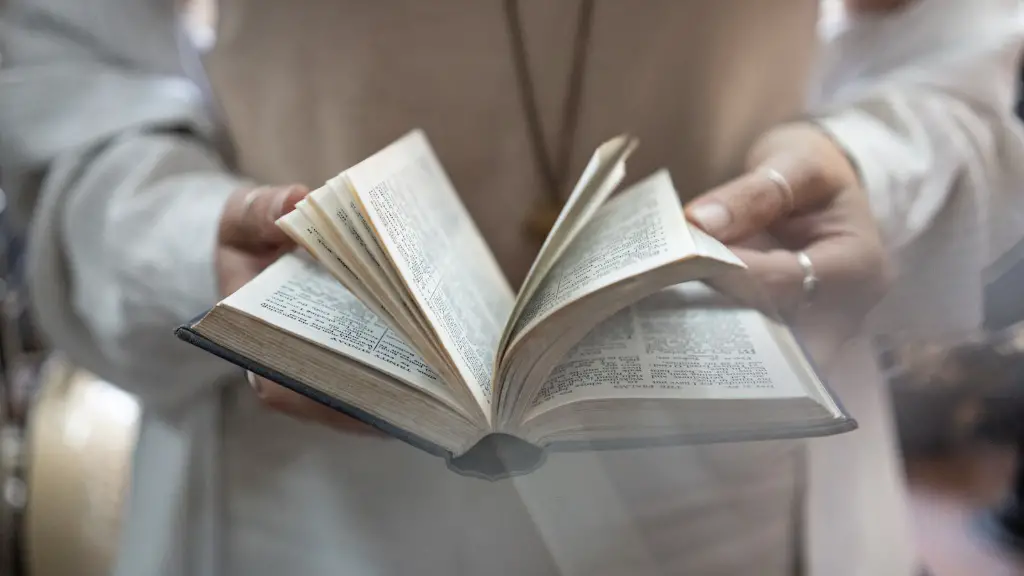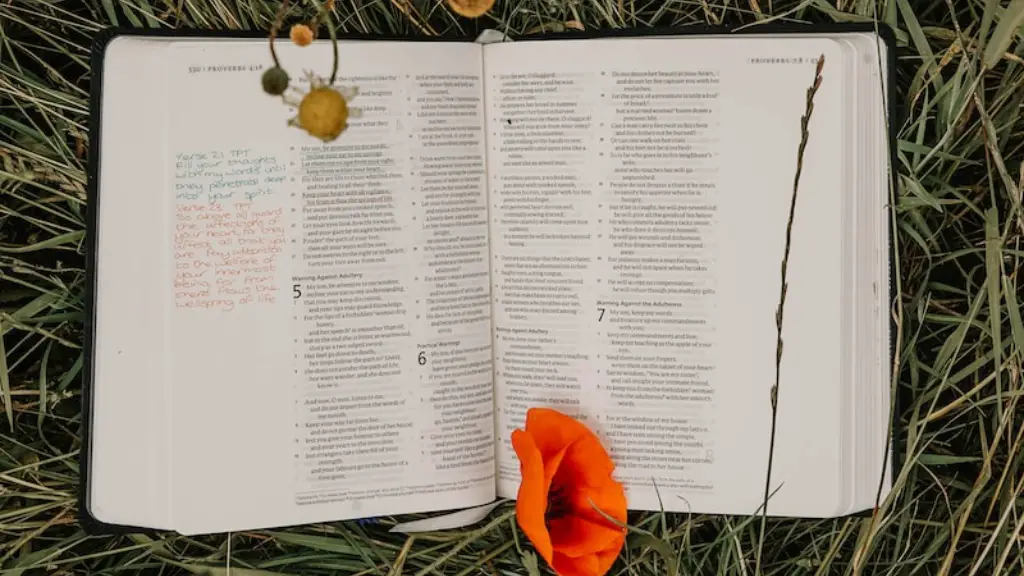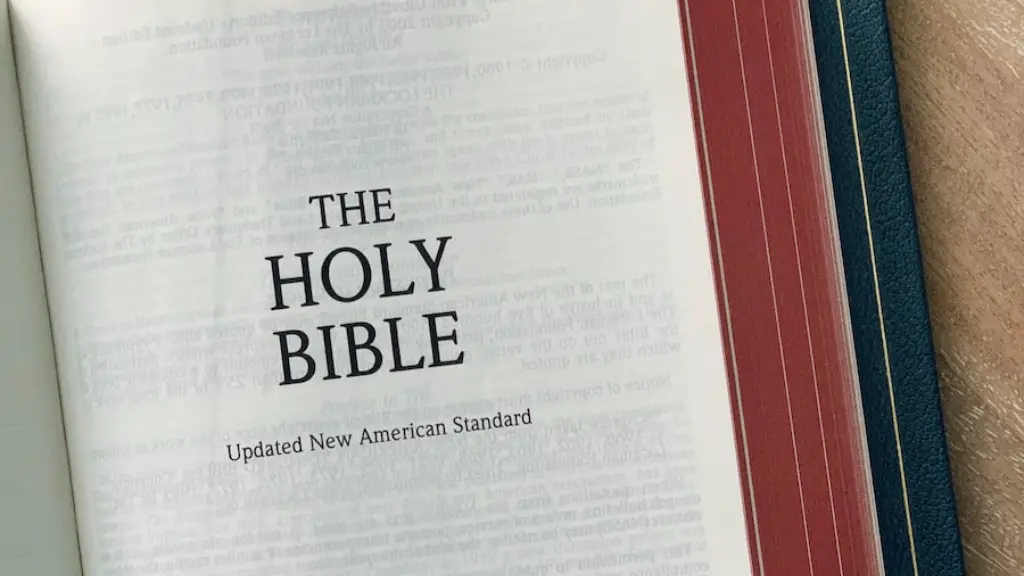No, the Bible does not say cremation is wrong. There is no specific commandment that says, “You shall not cremate your dead.” In fact, the Bible is silent on the matter of cremation.
There is no one-size-fits-all answer to this question, as it depends on how you interpret the Bible. Some Christians believe that cremation is wrong because it is seen as a form of mutilation of the body, which is a sacred vessel. Others believe that cremation is a viable option, as it is seen as a way of releasing the soul from the physical body. Ultimately, the decision of whether or not to cremate a loved one is a personal one, and should be made in consultation with your clergy or spiritual advisor.
Is cremation a sin Bible?
Cremation is not a sin according to the Bible. There is no explicit mention of it being a sinful practice. This means that Christians are free to choose whether or not they want to be cremated.
The Roman Catholic Church has a long history of banning cremation, seeing it as a sacrilegious act against Christians and God. This ban was based on the belief that cremation would prevent the resurrection of the body, and was seen as a physical declaration of disbelief in this key tenet of the faith. In recent years, however, the Church has softened its stance on cremation, allowing it in certain circumstances. This change reflects a greater understanding of the cremation process and its effects on the body, as well as a recognition of the personal preferences of Catholics regarding their final disposition.
Can you go to heaven if you are cremated
Cremation does not prevent one from going to Heaven, according to the Christian perspective. So there is no need to worry that God cannot restore life from ashes.
Cremation is first mentioned in the Bible in 1 Samuel 31: 11-13. In this passage, Saul and his sons are burned and then their bones are buried. This is after they have suffered great harm to their bodies.
Should Christians be buried or cremated?
While there is no definitive answer on whether or not cremation is acceptable for Christians, many Christians today are choosing cremation as an alternative to burial. There are many reasons why Christians may choose cremation, but ultimately it is a personal decision. Some Christians may choose cremation because it is more affordable than a traditional burial, or because it allows them to honor their loved ones in a unique way. Whatever the reason, Christians who choose cremation can still retain those aspects of their traditional funeral practices that are important to them.
It is clear that the Bible does not have a definitive answer on cremation as a means to dispose of the dead. However, there is no scriptural prohibition of cremation in the New Testament. This means that the Bible neither favors nor forbids the process of cremation.
What faith is against cremation?
Cremation is considered an unclean practice by Islam and is therefore strongly opposed by followers of this religion. This is in contrast to Judaism and Christianity, where there is more diversity of opinion on the matter.
There are different opinions on what happens to our relationships with our spouses and loved ones when we die and go to heaven. Some people believe that we will be able to continue these relationships in some way, while others believe that they will come to an end.
One reason why some people believe that we will be able to continue our relationships in heaven is because of the idea of the reunion. This is the belief that we will be able to meet up with our loved ones again after death. This can give people comfort in knowing that they will see their loved ones again.
However, it is important to note that these reunion will not be the same as our relationships here on Earth. Jesus explains that there will be no marriage in heaven. This means that our relationships will not be the same as they are now. We will not be husband and wife, or any other earthly relationship. Instead, our relationships will be based on our love for each other.
whether or not we will have relationships with our spouses and loved ones in heaven is still a mystery. But it is something that people have different opinions on. What is important is that we remember the loved ones we have lost and the relationships we have here on Earth.
Which part of human body does not burn in fire
The high temperature required to burn bone is due to the high levels of phosphorus and calcium in bone. When these elements are heated to high temperatures, they combine with oxygen to form calcium oxide and phosphorus oxide. These oxides are then transported out of the bone by the blood.
After a person dies in India, their body is typically cremated and their ashes are laid in one of the country’s sacred rivers. This is done in order to bring a complete end to the physical body and to symbolize the soul being transported to an auspicious next life. The Ganges is the most popular of these rivers, but there are others that can be used as well. This is an important part of the death rituals in India and is a way of ensuring that the soul is able to move on to the next life.
What churches forbid cremation?
Eastern Orthodox churches strongly oppose cremation. This is because these orthodox religions associate cremation with a deliberate desecration of the body. These churches prefer the natural decomposition of a traditional burial.
Religious beliefs play a significant role in dictating how people want their bodies to be handled after death. For many orthodox Christians, Muslims, and Jews, the idea of cremation is seen as taboo and goes against their beliefs. In their culture, it is believed that cremation might interfere with God’s ability to resurrect the dead and bring them to heaven. As a result, these individuals usually opt for traditional burial methods that are in line with their religious beliefs.
What does the Bible say about keeping cremated ashes
Cremating and scattering the ashes of a loved one is not inherently right or wrong, according to the Bible. The decision of whether to do so ultimately comes down to the wishes of the deceased or the personal preference of those burying a relative. There is no single correct answer in this matter, and whatever choice is made should be respected.
In 2 Kings 23:16-20, Josiah took the bones out of the tomb, burned them on the altar, and “defiled it.” However, nowhere in the Old Testament does the Bible command the deceased cannot be burned, nor are there any judgments attached to those that have been cremated.
What happens to the soul 40 days after death?
This is a belief held by many cultures and religions around the world. The soul is thought to continue wandering the Earth for another 40 days after the initial death. During this time, the soul is said to visit significant places from their life as well as their fresh grave. At the end of the 40 days, the soul finally departs from this world.
There is no ban on cremation for members of the Baptist faith. Cremation may take place either before or after the funeral service.
Warp Up
There is no explicit command in the Bible that prohibits cremation, so Christians are free to make their own decisions about whether or not to cremated their bodies after death. Some Christians believe that cremation is a way of disobeying God’s command to bury the body, while others believe that it is a more efficient and practical way of disposing of the body. Ultimately, it is up to the individual Christian to decide whether or not to cremated their body after death.
There is no definitive answer to this question since the Bible does not explicitly state whether or not cremation is wrong. However, some Christians argue that cremation goes against the Bible’s teaching that the body is a holy temple and should be treated with respect. Others believe that cremation is a matter of personal preference and that it is not important how the body is disposed of after death. Ultimately, it is up to each individual to decide whether or not they believe cremation is wrong.





